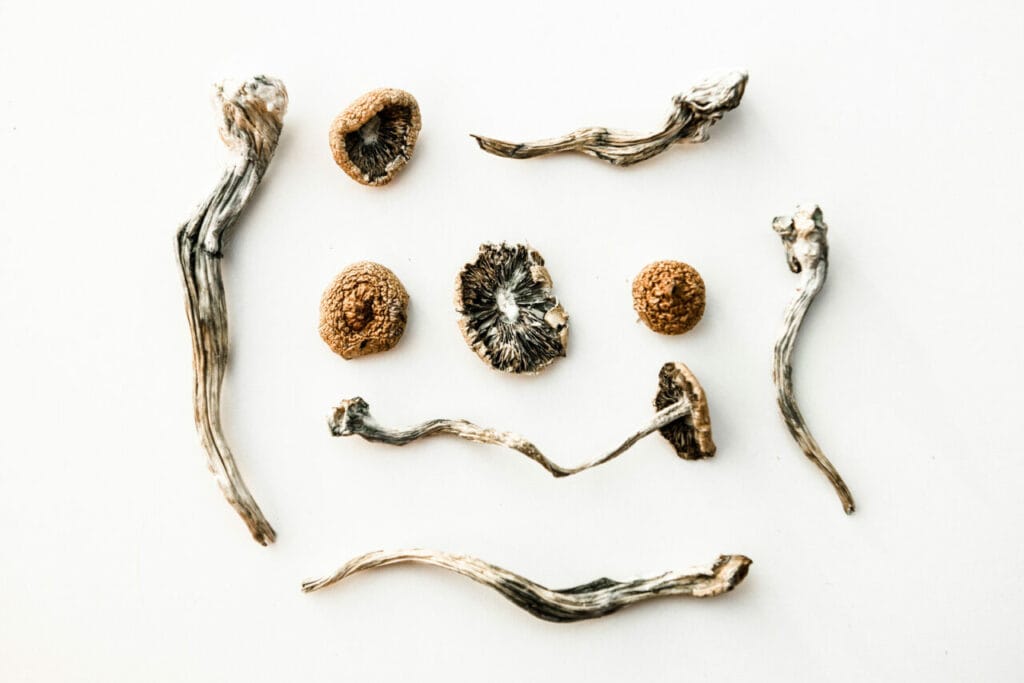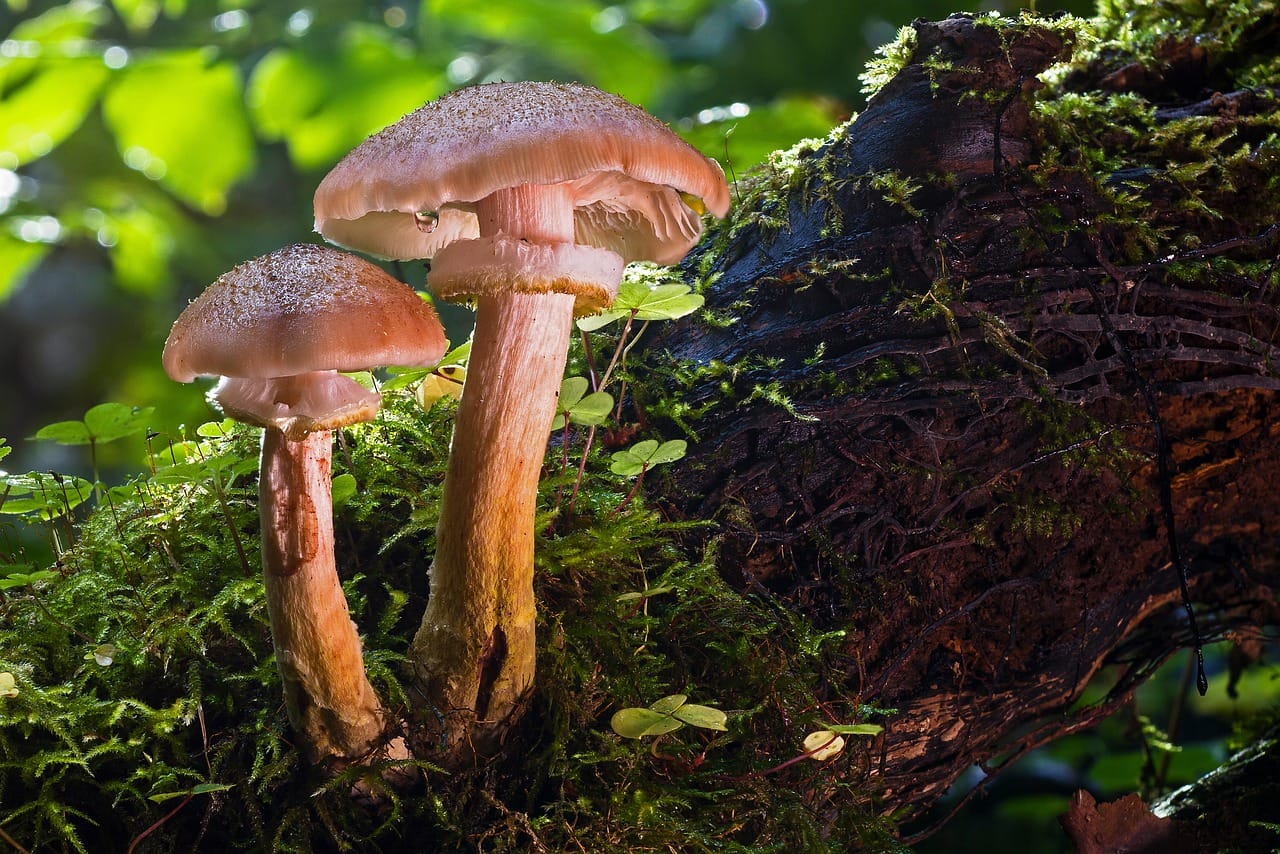Initially, many Canadians perceived magic mushrooms primarily as a recreational psychedelic substance. However, their perspective shifted as scientists started to investigate the active ingredient psilocybin and identified its powerful effectiveness in treating an array of mental health conditions.
As more information becomes accessible, our understanding of psilocybin’s potential applications continues to expand. This increased awareness simplifies the process for individuals to acquire these products through magic mushroom delivery services. A recent study underscores its role in human consciousness. Might this be the key to its profound impact on the human brain? Let’s delve into this fascinating journey into the world of magic mushroom products.
Key Takeaways:
- Magic mushrooms, due to their psychedelic properties, have impacted the cognitive processes of early humans, supporting their survival.
- Mushrooms play a significant role in neurological health, with their proven ability to relieve PTSD, depression, and anxiety.
- The influence of psilocybin on consciousness and brain functionality could have promoted creativity, introspection, and abstract thinking.

Historical Usage and Importance of Magic Mushrooms
Evidence from history suggests that our ancestors have been harnessing the power of psychedelic magic mushrooms since ancient times. Indigenous societies utilized them in sacred rituals and traditional ceremonies to honor their gods. These mushrooms are found worldwide, predominantly in subtropical and tropical areas such as South and Central America, the Caribbean, Southeast Asia, and Africa.
Magic Mushrooms’ Role in Ancient Civilizations
Indigenous groups in Mexico have used these fungi for spiritual insights, divine interaction, and religious rituals since ancient times. The Aztec Indians of South America named it “God’s Flesh,” employing it in healing ceremonies.
Archaeological evidence points to usage dating back to:
- Around 10,000 years ago in Australia,
- Almost 7,000 years ago in North Africa,
- Circa 6,000 years ago in Spain.
These findings are often interpreted by some academics as evidence of the widespread historical use of psilocybin. When ingested, these mushrooms induced a state of euphoria, with hallucinations often marked by complex geometric and visual patterns.
The Significance of Mushrooms in Bronze Age Spain’s History
In the mid-1990s, scientists discovered remnants, especially hair strands from around 200 Bronze Age societies, hidden within a cave in Minorca, Spain. The artifacts were remarkably well-preserved due to the cave entrance being sealed by fallen debris. Analysis revealed that these hair samples contained traces of three alkaloids, substances known to alter the human mind and induce different states of consciousness.
These discoveries provide fascinating insight into the reasons and methods ancient societies employed these substances. Interestingly, reaching an elevated state was actually quite normal during those times. However, the question of what effects these substances had on human evolution remains.
Psilocybin and the “Big Bang Theory” of Human Consciousness Evolution
In recent years, there has been a revival in psychedelic research, strengthening the idea that psychedelics had an influence on the evolution of consciousness. This notion, known as the stoned ape theory, was proposed by ethnobotanist Terence McKenna. This theory posits that consuming psychedelics may have significantly influenced the cognitive and cultural evolution of humans.
According to Dr. Thomas Falk, a professor of Philosophy and Education at the University of Dayton, this theory could potentially account for the so-called “creative explosion” that happened amongst Homo sapiens around 40,000 years ago, signifying a major leap forward in early human cognitive abilities.
It’s hypothesized that psychedelics allowed early humans to exist in self-created worlds. Over time, their enhanced cognitive abilities allowed them to emulate these experiences in their physical environments.
In Terence McKenna’s “Food of the Gods“, he presents his arguments that the stoned ape hypothesis is deeply rooted in ancient shamanistic practices and a speculated variety of plants and fungi.
“Capability to Trigger Neurological and Psychological Transformations”
Psychoactive substances possess the ability to provoke significant neurological and psychological transformations. These shifts could have played a significant role in the evolution of our species.
The study, which is based on a multidisciplinary approach incorporating biology, ethnobotany, and neuroscience, examines existing research on the relationship between psilocybin and human consciousness. It’s suggested that as early humans’ environment shifted from forests to grasslands, they encountered more animal dung, leading to an increase in fungi consumption. The study refers to the “stoned ape” hypothesis, which proposes this change in diet could have triggered substantial alterations in the brains of early hominids.
Effects of Consuming Psychoactive Substances
The potential outcomes of consuming these fungi could range from enhanced hunting and scavenging skills, increased sexual drive, to heightened sensory perception. Coupled with the impacts of psilocybin on consciousness and brain function, it’s conceivable that these factors could have fostered creativity, introspection, and abstract thinking, all of which are essential for the development of language.
The Peruvian scientists who carried out the study emphasize the need for additional research into the effects of these substances on the brain and human evolution. Despite their influence on brain areas associated with memory, decision-making, and introspection, the evolutionary implications remain a subject of ongoing research.
An independent genetic study indicates that magic mushrooms emerged around 67 million years ago. Human consumption of these fungi began millions of years ago, predating the use of marijuana.
What Are Dried Magic Mushrooms?
These mushrooms contain a hallucinogenic compound called psilocybin. The effects can vary depending on individual tolerance, body weight, and consumption method. Here are some expected effects:
- Intense joy
- A feeling of tranquility
- Spiritual insight and self-examination
- A dream-like state of disconnection from physical surroundings
- Altered visuals, such as seeing halos of light and vibrant colors
- Enhanced sense of well-being
While some people use it for recreational purposes, many others harness its medicinal properties, particularly for its positive effects on brain health.
Effects on Neurological Health
The active ingredient alters mood, perception, and cognition by engaging with serotonin receptors in the prefrontal cortex. The enhanced cognitive abilities, including the manipulation of visual and auditory experiences, augment the way tasks are performed.
Historical Connection
This principle can also be attributed to our early ancestors, specifically the so-called stoned apes. Their discovery and usage of these fungi, particularly during their ecological transition from forest to grassland habitats, resulted in increased exposure to animal feces, subsequently enhancing their consumption of these mushrooms. The “stoned ape” theory, cited in the study, suggests that this dietary shift potentially induced significant alterations in the brain structures of early hominids.
The ingestion of psilocybin mushrooms may have influenced the evolution of their consciousness and cognitive abilities. This might clarify how they came to possess vital survival skills.Present and Prospective Interactions
Recent research has shown that individuals afflicted with cluster headaches, anxiety, anorexia, obsessive-compulsive disorder, PTSD, and depression typically exhibit reduced serotonin levels. While selective serotonin reuptake inhibitors (SSRIs) are the common treatment, they often require a significant amount of time to exhibit improvement. Conversely, shrooms can provoke immediate shifts in brain neuron connectivity.
Modern Psychedelic Research – Clinical Trials
Since the early 2000s, scientists have been exploring innovative treatments designed for individual patient needs for various psychiatric and behavioural disorders.
Due to its capacity to infiltrate the central nervous system and enhance cognitive function, it has proven effective in therapy. Progress in 2020 research indicates that psychedelic therapy using psilocybin products mitigates severe depression.
As noted by Matthew Johnson, a professor at Johns Hopkins Medicine, these substances modify the way different brain systems communicate. An increase in connectivity between brain regions that typically don’t communicate effectively is observed. Conversely, regions that usually interact extensively display reduced communication.
This induced disarray is not merely a side effect but presents potential therapeutic value. Individuals suffering from depression often become trapped in self-critical, repetitive thought cycles that worsen their condition. Psychedelics disrupt these patterns, facilitating individuals to escape from their deeply rooted negativity during a psychedelic experience. This leads to more adaptable thinking and an enhanced ability to manage critical
Purchasing Magic Mushrooms Online: A Step Towards Healing
A broad variety of these monitored substances can be found online. From a safe and laboratory-tested assortment, you can make a choice, mitigating the hazard of unintentionally buying harmful mushrooms. Reliable vendors assure the quality and safety of the products they offer.
| Product | Psilocybin Content | Psilocin Content | Benefits |
| Enigma | 0.76% | 0.07% | Boosts Focus, Provides Uplifting Effects |
| Atlantic Treasure Coast | 0.59% | 0.08% | Improves Concentration, Stimulates Creativity, Encourages Neuroplasticity |
| Blue Magnolia | 0.58% | 0.08% | Better Memory, Helps Combat Depression and Anxiety |
| Cambodian | 0.45% | 0.06% | Aids in Treating PTSD and Anxiety, Helps in Substance Abuse Recovery, Mood Enhancer |
The Undiscovered Potential of Magic Mushrooms Revealed
All the progress we witness today, including the rise of civilizations, urbanization, and societies, are the outcome of various advancements. Although the stoned-ape theory may simply be a theoretical debate among scholars, scientific research is gradually uncovering evidence supporting the notion of psilocybin playing a crucial role in human evolution.
If you’re in the market for a boost in cognitive development, Momentum Mushroom Canada’s magic mushroom delivery is your best bet. We offer an extensive selection of high-quality shrooms from A to Z, with fast shipping options across British Columbia and beyond.
Dive into the future of personal growth — explore our collection of premium psychedelics online Canada today.
Commonly Asked Questions
Which type of shrooms were consumed by ancient civilizations?
Various species of fungi are spread worldwide, so it’s not possible to pinpoint a single type that was universally consumed. Some communities favored the well-known liberty caps, while others were inclined towards Psilocybe cubensis. Most people either ate these mushrooms raw or prepared edible variants such as tea blends.
What is the role of psychedelics in contemporary human development?
In the modern age, psychedelics primarily function by activating the 5-HT2A receptor subtype. This interaction has proven successful in alleviating stress-related disorders and greatly enhancing creativity and social conduct. Such changes can potentially enhance adaptability and resilience, especially in societies that place a strong emphasis on knowledge and social cohesion.
Did spiritual practices involving mushrooms play a role in human evolution?
Indeed, human evolution was influenced by spiritual practices that incorporated mushrooms. These practices fostered a deep sense of interconnectedness, creativity, and communal bonding, shaping cultural, religious, and social structures.
Articles You May Find Interesting:





